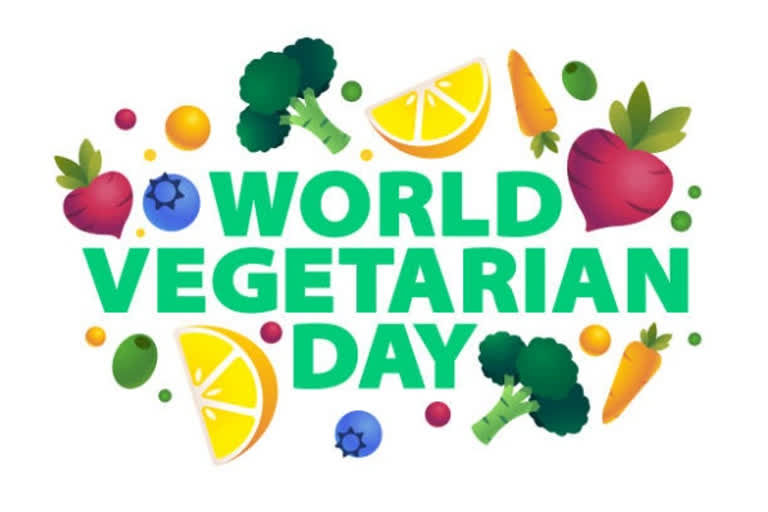Hyderabad: Celebrated on the 1st of October worldwide, World Vegetarian Day was established by the North American Vegetarian Society (NAVS) in 1977 in order to bring awareness to the Health, Ethical, Humanitarian, and Environmental benefits of the Vegetarian Lifestyle. Further endorsed by the International Vegetarian Union in 1978, the entire month of October is observed as Vegetarian Awareness Month.
A vegetarian diet varies from vegetables, seeds, legumes, fruits, nuts, and grains. The lifestyle also includes Lacto-Ovo vegetarians, who consume animal products such as eggs, dairy, and honey. A stricter form of Vegetarianism is Veganism, where consumers abstain from consuming anything that may include any kind of animal products or may be made from animal labor. Others include Raw Vegetarianism, where consumers only eat raw foods or products that have been dehydrated; and fruitarianism, where adherents only consume fruits and nuts, preferably obtained without any harm to the plant.
Different reasons to adopt Vegetarianism as a Lifestyle: In many cultures like Hinduism, Buddhism, and Jainism vegetarianism is an integral part of religion. Many such sects prohibit the consumption of meat and animal products, though the use of milk, honey, and sometimes unfertilized poultry eggs is acceptable.
Religious vegetarianism tends to emerge from a philosophy of non-violence and compassion toward the natural world, hence members of the Jain religion follow a form of vegetarianism that not only prohibits eating animal products, but also restricts the consumption of root vegetables like onions, potatoes, and garlic.
Also read: Which diet will help save our planet, climatarian, flexitarian, vegetarian or vegan
People also follow vegetarianism as a way to protect the environment, as they believe that raising and killing animals for food negatively affects the environment, creating pollution and contributing to climate change. Vegetarianism is also adopted by people out of concern for animals and their treatment at farms where they are being raised for food.
On the other hand, people adopt the vegetarian diet for its health benefits. Research has shown that a plant-based diet can help with better heart health as high fiber, whole grains, legumes, nuts, etc are all great for heart and body health. It also helps with lower blood pressure, stronger bones, weight management, and controlling diabetes.
According to the National Health Portal of India, the myths surrounding the vegetarian diet that it lacks protein, it has no taste or variety, have been debunked. To receive the essential amino acids, people should focus on eating a variety of protein-rich diet which includes lentils, sprouts, oats, soya, soya milk, almond and walnuts, beans, seeds, milk, and cottage cheese (paneer). In fact, a well-planned vegetarian meal can add taste as well as variety to savor your taste buds.



